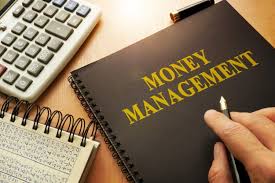97 Manage Money
- Pay off all high interest debt, such as credit cards. See if you can consolidate that debt into a lower interest rate loan with your credit union.
- Build an emergency fund. Keep about one month’s living expenses readily available if there is an issue. If you have dependents, for every dependent add a month’s worth of emergency funds.
- Max out retirement. I know this seems SO far away, but go to the retirement meetings at work and ask exactly how much you should be putting away not to ensure your living expenses are well-covered in retirement and then do it. You can meet with a financial planner also and they can help you with this.
- College savings. If you have kids, set up a 529 college savings plan for them and start automatically putting a certain amount into this account each month.
- Pay off debt. If all the above are covered and you still have cash left, pay off all your debt Get rid of your car loans, student loans.
- Invest. Meet with someone who can take your situation and your risk tolerance into consideration.
- Have insurance. If you rent, have renter’s insurance. My son and his wife and family were able to get safely out of their burning apartment building, but did not have insurance…everything, including clothes was lost. Don’t make that mistake. Same with life insurance. I look at these things like shields. You may never need them, but when you do, it is important that you have them.


